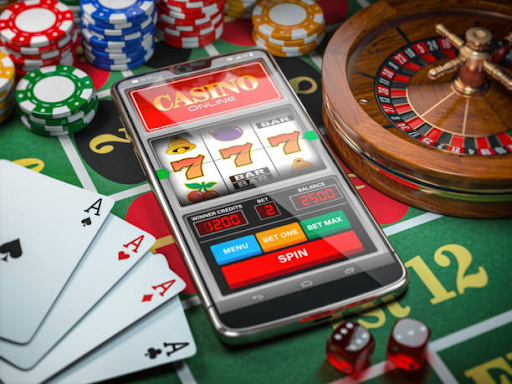The integration of Virtual Reality (VR) technology into online gaming is revolutionizing the way players engage with and experience games. Among these advancements, online slots, a perennial favorite among digital casino games, have seen transformative changes that have redefined gaming dynamics and player interactions. This article delves into the impact of VR on online slots, exploring how this technology enhances the gaming experience, the technical innovations involved, and what the future holds for VR-enabled gaming platforms.
Table of Contents
Introduction to Virtual Reality in Online Slots
Virtual Reality is a simulation of a three-dimensional environment that can be interacted with in a seemingly real or physical way by a person using special electronic equipment, such as a helmet with a screen inside or gloves fitted with sensors. In the context of online slots, VR technology creates a fully immersive gaming environment that stimulates the player’s senses, providing a lifelike experience that replicates being in a physical casino.
The Enhanced Gaming Experience
The primary appeal of VR slots lies in their ability to deliver a more immersive and interactive experience. Players can walk around a virtual casino, interact with other players and live dealers, and play slot machines as if they were in Las Vegas, Macau, or Monte Carlo. This enhanced interaction is not just about visuals; it extends to sound, game interaction, and even the machine’s touch and feel through haptic feedback gloves.
Realistic Casino Atmosphere
Through the use of sophisticated VR headsets, players are transported into a meticulously crafted casino environment. The high-definition graphics and 3D effects allow players to experience the bright lights, hear slot machines’ distinct sounds, and even feel the texture of the upholstery on the furniture. This realistic setting significantly enriches the player’s engagement and enjoyment.
Interaction and Engagement
VR slots offer a social dimension that traditional online slots can’t match. Players can interact with each other, share tips, celebrate wins, or commiserate losses. This ability to socialize enhances the gaming experience, making it more enjoyable and vibrant.
Technical Innovations in VR Slots
Incorporating VR into online slots requires innovative technologies and software developments. These innovations are not just limited to hardware like VR headsets but also encompass the software algorithms that drive them.
Game Design and Software
Developing VR slots involves more than just traditional game design. It requires the integration of advanced 3D modeling, life-like animations, and sophisticated software algorithms that support real-time gaming interactions. Game developers use powerful game engines like Unity or Unreal Engine to create detailed virtual environments that can handle complex user interactions and data-intensive operations.
Hardware Integration
The success of VR slots heavily depends on the seamless integration of hardware components. VR headsets, motion detectors, and haptic gloves are essential for creating a tactile gaming environment. These tools not only help simulate the visual and auditory aspects of the casino but also the touch sensations, enhancing the realism of the slot machines.
Player Accessibility and VR Casinos
One significant challenge with VR slots is the accessibility for players. VR technology, while increasingly affordable, still requires players to invest in equipment, which may not be accessible to everyone. However, as VR becomes more mainstream, these costs are expected to decrease, making it more accessible to a broader audience.
Economic Aspects
The economic implications for casinos incorporating VR are profound. They can attract a new demographic of players looking for an immersive, interactive gaming experience, potentially increasing their customer base. Moreover, VR slots allow casinos to offer games with higher engagement levels, possibly leading to increased spending per visit.
Regulatory Challenges and Opportunities
With new technology comes new regulations. Online gambling laws vary significantly from one jurisdiction to another, and adding VR into the mix introduces a layer of complexity regarding compliance.
Ensuring Fair Play
Regulators need to ensure that VR slots, like all casino games, operate fairly and transparently. This involves certifying that the random number generators (RNGs) powering these slots are unbiased and that the game’s mechanics are not exploitative.
Privacy and Security
The immersive nature of VR could potentially increase the risk of data privacy issues. Players’ interactions in a virtual casino could be tracked more extensively than in traditional online platforms, necessitating robust data protection measures to secure personal and financial information.
Conclusion
The impact of Virtual Reality on online slots represents a significant shift in the online gambling industry. By providing an immersive, interactive, and enjoyable gaming experience, VR has the potential to completely transform the way players engage with online slots. Despite challenges such as accessibility and regulation, the future of VR in online slots is bright, promising a new era of engaging, interactive, and immersive gaming experiences. The next-generation of gaming has arrived, and it is set to take players on an unforgettable virtual journey.










